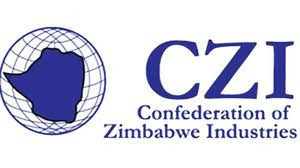
THE Confederation of Zimbabwe Industries (CZI) has raised alarm over the influx of substandard goods into the local market despite the existence of a programme to monitor the importation of products that meet safety and quality standards.
In 2015, the government introduced the Consignment-Based Conformity Assessment (CBCA) programme, which requires selected imported goods to be inspected and certified for compliance with Zimbabwe’s quality and safety standards before shipment.
Its main aim is to protect consumers from substandard and counterfeit products, while promoting fair competition and curbing the influx of mispriced imports.
“As the private sector, we pushed for this to protect our markets from counterfeit products. But the CBCA is not helping much — mispriced and substandard goods are still entering through porous borders,” CZI Trade and Regulatory Affairs officer Chinyaradzo Phiri said during a government CBCA Programme Consultation Workshop yesterday.
She noted that the programme has become burdensome for formal businesses, with delays in certification and inspection stretching from the stipulated 3-5 days to up to three weeks in some cases.
This, she added, was driving up production costs and disrupting supply chains.
“The process is only enforced on formal importers,” Phiri said.
“Informal players are bypassing it and flooding the market with cheaper, non-compliant products, making it harder for compliant businesses to compete.”
- Mthuli Ncube abandons struggling consumers
- Fears of jobs carnage as crisis deepens
- Fresh warning over bank rate hikes
- In Conversation with Trevor: ‘Zim must invest in human capital’
Keep Reading
CZI also pointed to compliance barriers faced by suppliers, especially those in China and Europe, who are often unwilling to provide the required documentation, forcing Zimbabwean firms to turn to more expensive alternatives.
“The inspection costs are being passed on to buyers, which is increasing raw material prices. In the end, the local industry is being disadvantaged, leading to increased incentives for corruption,” Phiri said.
The CBCA programme requires selected imported goods to be inspected and certified in the country of export before entry into Zimbabwe. It is meant to guard against harmful, substandard and counterfeit products.
Macheka Muchumairi, quality assurance and trade measures in the Ministry of Industry and Commerce, acknowledged the challenges and reaffirmed the government’s commitment to reviewing and refining the CBCA framework.
“We’re not here to impose, but to listen. This is a pivotal moment to shape the future of the CBCA programme together,” he said.
Muchumairi added that the programme remained a key pillar in Zimbabwe’s industrial policy under the Zimbabwe Industrial Reconstruction and Growth Plan, with objectives including consumer and environmental protection, fair competition, and curbing counterfeit trade.
He added that the latest changes enacted through Statutory Instrument 35 of 2024 were based on wide consultations and aimed at improving efficiency and cost-effectiveness.
“We will continue reviewing the implementation of the CBCA programme, incorporating feedback from the business sector and regulators,” Muchumairi said.
The ministry also revealed it is pursuing ISO 9001 certification, signalling a push towards international best practices in quality assurance.










